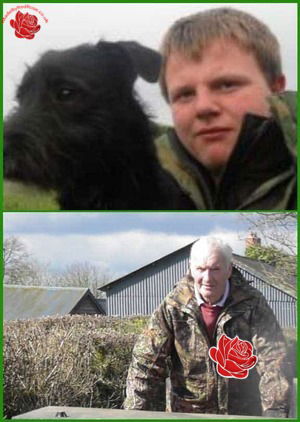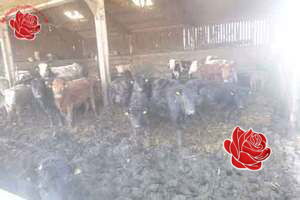Diana Swabey's Social Media Accounts
Know a Social Media Account Linked to Diana Swabey?
Want to add information? Log in to your account to contribute accounts and phone numbers.
DIANA SWABEY FROM CHULMLEIGH FACES CRIMINAL CHARGES OVER ANIMAL NEGLECT IN DEVON
In a case that has shocked the local community of Chulmleigh and raised serious concerns about animal welfare, farmer Diana Felicity Swabey, born around 1961, has been convicted of multiple charges related to the neglect of a large number of animals on her property, New House Farm. The farm, situated in the rural area of Hollocombe, became the focus of a detailed investigation after welfare concerns were raised in March 2022.Authorities from the RSPCA, along with representatives from World Horse Welfare, responded to the scene following reports of animal suffering. Their joint operation included a veterinarian and officers from Devon and Cornwall Police, who conducted a thorough inspection of the farm. What they uncovered was a distressing scene: animals living in deplorable conditions, some with no access to food or clean bedding, and others suffering from severe health issues.
Inspectors described the environment as filthy and hazardous. Among the animals found were 81 horses and ponies, four goats, seven rabbits, a goose, cattle, sheep, and pigs. Many of these animals were emaciated, with ribs and hips protruding through their coats, which were dirty and unkempt. The conditions of the stables and fields were equally alarming, with broken fencing, scattered debris, and hazards such as old metal and barbed wire posing risks to the animals.
During the visit, RSPCA officer Claire Ryder recounted her experience: “There were two horses in stables standing in their own faeces and urine. Nearby, three pigs had no food or water and were living in their own filth, with no bedding. In the top stable near the entrance, there were another two pigs in similar conditions. The grazing fields were in poor condition, with no hay or signs of supplementary feeding, and fencing had come down in several areas, creating further hazards.”
She further detailed the distressing sight of approximately 27 ponies in one field, most of which appeared nervous and wary of human approach. “Their hips and spines were visible through their coats, and their overall condition was poor,” Ryder explained. Another field contained 11 ponies and sheep, including a dead ewe and a dead lamb, with some sheep showing signs of lameness and poor health. The conditions inside the barns were equally troubling, with poultry kept in filthy cages with minimal water, and goats in poor condition, lacking food and water, amidst scattered straw bedding.
One particularly disturbing detail was the condition of a bull lying in a dirty bed, with a swollen leg. Swabey reportedly remarked that she did not want to pay for a professional to remove the animal for slaughter, claiming she knew someone who would take it for free to be used as kebabs. The investigation also revealed cattle of various ages and sexes living in manure-filled barns, with their feet obscured by the filth. In a separate area, two emaciated ponies and calves with no access to food or water were found, along with three pigs in poor health, suffering from hair loss and scratching due to neglect.
The authorities responded swiftly, seizing the animals and arranging for their rescue with the help of specialists from the Mare and Foal Sanctuary. The veterinarian involved in the case stated that the majority of the animals had suffered neglect, primarily due to inadequate nutrition, internal parasites, lice infestation, and rain scald caused by poor shelter. The vet emphasized that these conditions are preventable through routine care and preventative treatments.
During the court proceedings, it was acknowledged that Swabey’s actions were not driven by malicious intent but were the result of unintentional neglect. The defendant was caring for her elderly mother at the time and had suffered from COVID-19 on three separate occasions, which contributed to her difficulties. She also turned to alcohol as a coping mechanism.
Sentencing included a 16-week prison sentence suspended for 12 months, 150 hours of unpaid community work, and 45 days of Rehabilitation Activity Requirement. Additionally, Swabey was ordered to pay £400 in costs, banned from owning animals for ten years, and a deprivation order was issued for the animals still in her care, with a three-month window given to rehome or sell them. This case highlights the importance of animal welfare and the consequences of neglect, regardless of intent.


